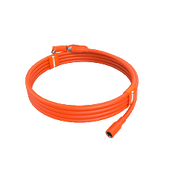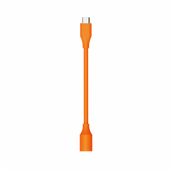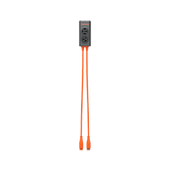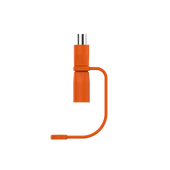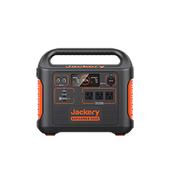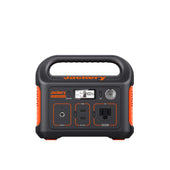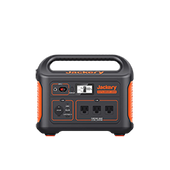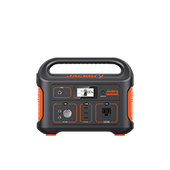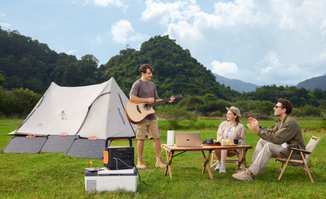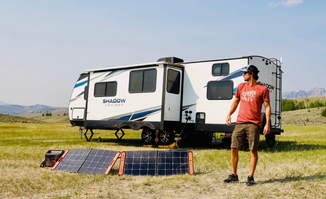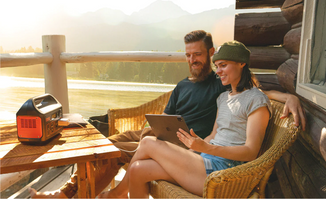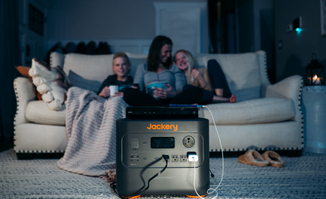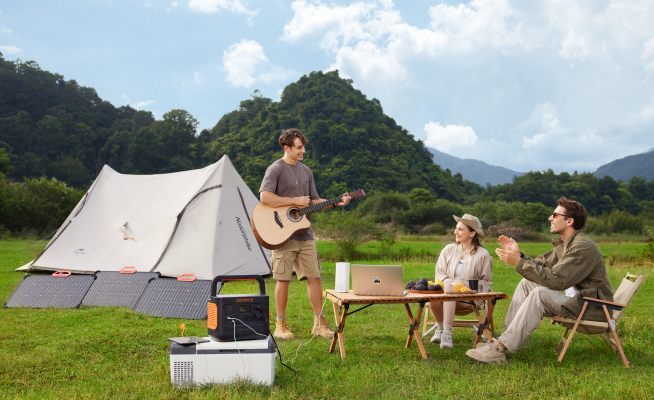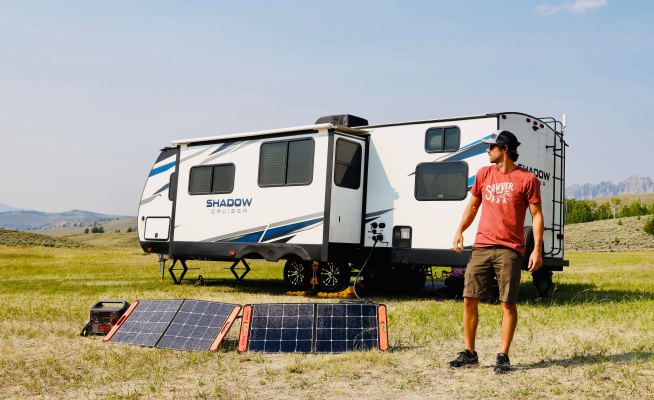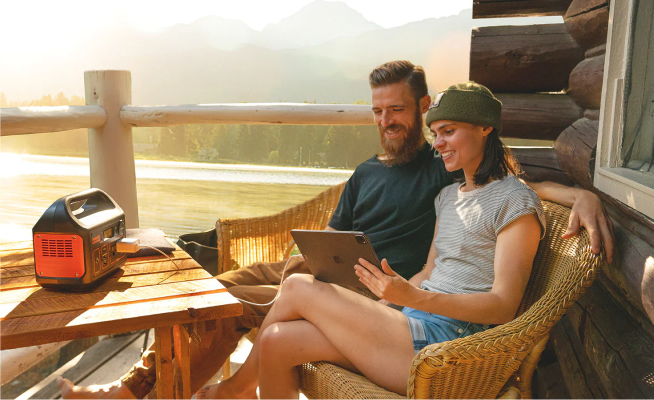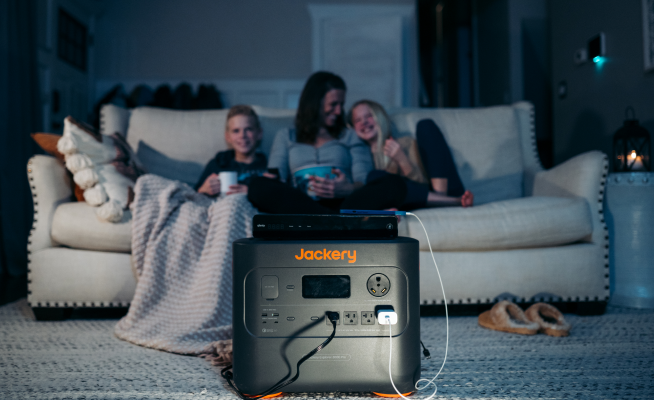Van Life 101: Ultimate Guide to Living in a Van
Van life has recently seen a significant online craze. The gorgeous #vanlife pictures have been shared on social media, and you want to live a carefree, adventurous life accordingly. You want to quit your job, build out a camper van, and abandon everything. Expressed, living in a modified vehicle with minimal amenities on a part- or full-time basis is known as van life.

But before you start living in a van, there are a few things to consider. This article is intended as a starting point for your journey living in a van. We discuss the pros and cons of van life, the challenges, the gear for van life, and the specifics of how to live in a van practically.
What is Van Life
Living in vans or other vehicles converted into tiny portable dwellings is known as the "van life" alternative lifestyle. Minimalism, simplicity, adventure, and a reevaluation of what is truly important in life are all characteristics of this nomadic style of life. Van life is a word that refers to more than just living in a vehicle. It represents a change in how people think, a trend permeating our generation's thinking.
Some people may view the hashtag #vanlife as an escape. Others may view it as a minimalism, adventure, or independence symbol. However, for those who practice it, van life is a movement, a way of life, a way to live more in tune with ourselves, and a form of resistance to things.

Why People Choose Van Life?
Numerous factors influence people's decision to lead nomadic lives. Some people live in vans on the side or just while on a short road trip. Others decide to give away their possessions and move permanently into a vehicle. However, you approach it, living in a van is gratifying. It is thrilling. And if you let it be, it's a ton of fun.
- Dive Into Uncertainty:Nomadism forces you to plunge continually into uncertainty, which can be terrifying and exhilarating. Traveling is an adventure every day. Every day has the potential to bring about something novel and unexpected.
- Enable Personal Development: Living in a van is not always easy; it may sometimes be challenging, despite how it may appear on Instagram. There will be a lot of uncertainty and suffering for you. A lot of your time will be spent alone with yourself.
- Become The Minimalist:There needs to be more room for unnecessary items when you live in a van. This compels you to assess your possessions and pare down your collection to the things you use and need. It has the potential to improve your psychological health significantly.
What Challenges Will You Have in Van Life?
Van dwelling provides us with a vibrant community, a chance to live more simply and sustainably, and a way to balance experiences and possessions in a balanced way. Even though there are numerous benefits to living in a van, it's only for some. Here are some of the more challenging aspects of this way of living.
- Meet Extreme Weather:Living in a camper van restricts your ability to regulate your surroundings. You'll always be partly dependent on the weather outdoors. No matter what you do, you'll never be able to control the temperature in a vehicle as quickly as you can in a home.
- More Work To Do:Contrary to what you would think from Instagram, living in a van is not all about hanging out in picturesque locations. Van living requires a lot of work, and planning must always be ongoing.
- Spend Time Outside:Being outside is part of van life. No matter how roomy or comfy your van is, no matter how many conveniences you built-in, you will still spend the majority of your time outside.
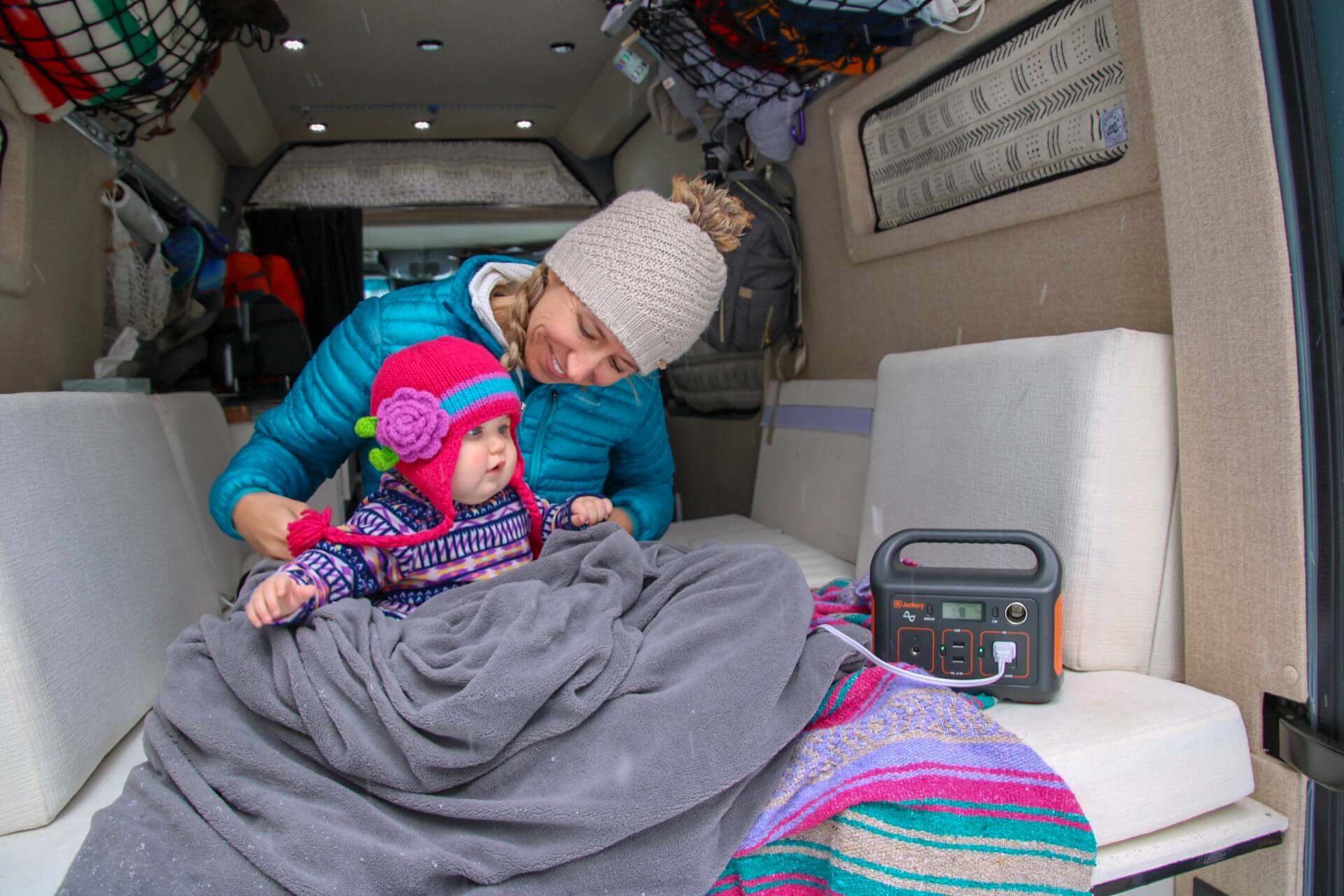
The Pros and Cons of Van Life
Everyone experiences van life differently. While some van dwellers spend thousands on a rig, others make their campers. Thinking about the pros and cons of living in a van before diving into the how-to is crucial. Here are a few advantages and disadvantages of living in a van that I've observed while traveling.
|
Pros of Van Life |
Cons of Van Life |
|
- Freedom - Flexibility in time and place - Every day is an adventure - Enable personal growth - Dive into uncertainty - Live more simple - Spend less and achieve financial goals - Meet new people and join the van community - Get away from the virtual world - Embrace nature |
- Real van life is not like it on Instagram - Much more work - Meet extreme and uncertain weather - Meet unknown things - Inconvenient to shower and cook - Limited space - May have safety issues - Need a backup plan in case vans issues - Internet is unstable - Privacy concerns |
The Pros of Van Life
A van lifer leads a very different lifestyle than the average individual. As a person who lives in a van, you never know what awaits you in the morning. The independence that comes with living in a van is something that many people can only imagine. It enables you to take charge and lead a life as your boss while engaging in the activities you enjoy most, free of the demands of a demanding profession.
Van conversions are more affordable than RVs, making them more available to folks on a limited budget. Additionally, living in a van can reduce expenses by doing away with bills like rent and utility payments. Every turn leads to a fresh experience. Every day is different, whether you are van-camping on the beach or in a National Park.
The Cons of Van Life
Living in a van requires a lot of preparation and work, so it's more complex than it seems. You must find a different spot to sleep almost every night, be ready for all kinds of weather, and keep up with van maintenance. There are moments when living in a van may be stressful, and you must continually cope with new issues. Examples are finding a different place to sleep every night, changing temperatures, and needing more organization.
Van life means sharing a small area and frequently going without amenities like indoor plumbing and regular toilets. Some people may find it challenging to get used to this discomfort. Van living can sometimes mean giving up privacy, particularly when you're sharing public parking lots or campgrounds.
The Van Life Essentials
You have no choice but to bring the essentials for van living merely. Very little space is available when living in a van, making it extremely difficult to pack everything you believe you'll need. As a general rule, avoid bringing anything you won't need every week unless it's an "in case of emergency" item. If this is your second road trip, throw away whatever you didn't use at least a few times the first time.

- Van Electric System: Jackery solar generator, outlets, box, lighting, charging cable
- Van Appliances: Fridge, fan, shower, sink, water tank
- Van Kitchen Essentials: Stove, coffee maker, refrigerator, pot, bottle, plates & bowls, dish soap
- Van Bathroom Essentials: Portable toilet, paper, shower, dry shampoo, towels, wet wipes
- Van Bedding Essentials: Mattress, sheets, pillow, swivel chair, curtain
- Van Safety Essentials: Fire extinguisher, first aid kit, emergency beacon
The Jackery solar generator is the best solution if you want to charge your devices everywhere and need a simple electrical system. It is highly recommended to anyone who plans camping, works outside frequently, or goes car camping. You can refuel this battery with the Jackery portable solar panels. The solar panel is excellent since it folds up so little and is incredibly portable. You can utilize a battery and solar panels as a backup solution. If you need a small amount of electricity and are worried about constructing a complete solar and electrical system with wiring and all the extra equipment, this is your best alternative.
How to Live in a Van: Van Life Basics
If you're reading this page, you may have concerns about the practicalities of living in a van. This section covers everything, including how to build a van, find overnight camping, use bathrooms and showers while traveling, earn a living, and obtain your mail.

Step 1: Plan Your Van Life
The best thing about van life is that it doesn't require special skills or a large budget. If you have the necessary tools and information, you may quickly begin living in a van. Consider several things as you prepare for life on the road. It's crucial to consider issues like "What will I do with all my stuff?" and "What gear should I carry with me?"
Choosing how dedicated you will be to the lifestyle is the first step. Do you want to live in a van full-time or only occasionally take excursions in one? This will assist you in determining the kind of vehicle you require and how much you should spend on it.
Step 2: Choose Your Van
Understanding what's correct for you is necessary to select the ideal vehicle for van life. Many choices are available, so you have questions: Which is better, a new or a used van? A Volkswagen, a Dodge Promaster, a Ford Transit, or a Sprinter? These are the most common kinds of rigs you'll find on the market when determining what type of van to buy:
- Sprinter Vans: If you've been reading this page for a long, you won't be surprised to learn that Bearfoot Theory prefers to drive a Mercedes Benz Sprinter Van.
- Ford Transit:It is distinctive in that an AWD option is available. Additionally, Ford Transits have a higher interior height than Sprinters and are slightly less expensive to purchase and maintain.
- Dodge Promaster:It is another well-liked option for van living and is significantly less expensive than Sprinters and Transits.
- Budget Cargo Vans:Ford Econolines, Chevy G Series, Chevy Express, and Chevy Astros are popular budget cargo vans.
- Used Van:Another choice is to locate a pre-converted used campervan.
Step 3: Convert Van Into Your Home
Van life can take on a variety of forms and dimensions. You've decided on the kind of van, have ideas for the inside, and an unforgettable road trip is calling your name. There are several things to consider when outfitting your home on wheels. Designing your van should be a smooth process, and research is essential before you begin the conversion.
- Plan Van’s Layout:Plan your new small mobile home's layout here, from the bed design to the kitchen layout.
- Van Insulation:Insulation keeps your van cozy. There are many myths about the ideal method for insulating a vehicle, so it's crucial to complete this step correctly.
- Walls, Ceiling, Floor:The walls, flooring, and ceiling comprise the three structural components.
- Electrical System:Designing the solar and electrical system, of which a Jackery solar generator is the best option, is one of the most challenging aspects of the process.
- Water System:Before installing the water system, you should think about how much water you'll consume in your camper van, just like you would with the electricity.
- Add Furniture: While many people choose van living because they want to live a simpler life, this is only a pleasant side effect for some.
- Decoration & Last Touches:This one is among the most exciting parts of converting the van into your mobile home.
Step 4: In Case The Accidents
Accidents and uncertainty do occur occasionally. Having everything you need on board can help to keep you and your mobile home safe. Make sure you are fully prepared with a few easy and fundamental safety items before embarking on any van life journey.
- Fire Extinguisher: Having a fire extinguisher in your car is an excellent idea. It's required in many nations, and some will check it regularly.
- First Aid Kit:This kit has items that can be used to treat minor wounds like cuts, scrapes, burns, bruises, and sprains.
- Breakdown Kit:A breakdown kit with warning signs and a high visibility vest are practical items to carry. These items are legal requirements in many nations across the world.
- Recovery Kit:If your car gets trapped or snarled, a recovery kit contains tools to free your vehicle.
Step 5: Insurance for Your & Your Van
You'll need van insurance coverage to cover your complete construction rather than the vehicle. Progressive Insurance is one of the only businesses I've found that provides total replacement coverage for class B converted vans.
There is no way to sugarcoat that the US health insurance system is horrible, especially if you travel frequently. Only some viable solutions provide coverage across all 50 states for itinerant van lifers. The Affordable Care Act (ACA) allows anybody to sign up for an insurance plan on government exchanges and offers subsidies to lower-income individuals to help them afford it. An ACA plan can suit you if your van lives in/around one location.
Step 6: Live in Your Van
You might be asking how to begin living once your van is prepared to travel now that you are all set and designed to tackle the open highways. What will it genuinely be like to live permanently in a van? Where is the ideal manual for living in a van? These aspects of van life, such as cooking and working in the van, define it for what it is.
- Cooking in Your Van:Living in a van and eating delicious, home-cooked cuisine are distinct ideas. Many great meals can be prepared on the go, including burrito bowls, frittatas, shakshuka, and more.
- Laundry and Other Water Use:Finding locations to shower, emptying your greywater, and refilling your water tank are some less glamorous aspects of living in a van. RV parks, petrol stations, and public parks are typical locations to top off your water tanks.
- Bathroom or Shower: Every person who lives in a van does showering slightly differently. Some people make an effort to take a shower at least twice every week. Others could skip taking a shower for a week or more.
- Get Mail on The Road:There are a few different ways to receive mail while traveling. A reliable friend or family member can accept it if you have a PO Box. Any packages dispatched from Amazon's website may also be stored in an Amazon locker.
- Make Money:There are many ways to make money using your own two hands, and the internet has created many opportunities for digital nomads and remote workers, including short-term work, freelance work, online businesses, and Youtuber.

Step 7: Find A Place to Park
There are numerous, frequently entirely free, choices for parking your van in the US. However, your preferences will be influenced by the kind of van life nomad you are and the amenities you require nearby
- Parking Lot: Living in a van sometimes means camping in a parking lot, which isn't the most glamorous of situations.
- Public Land:People preferred choice for van life overnight parking is dispersed camping on public lands. The US has a wealth of public land, allowing free camping.
- Campgrounds:Reserving a space at a campground is an additional alternative for staying in your van. Because most campgrounds charge fees, most van lifers prefer to keep their spending to a minimum. State parks, RV parks, federal campgrounds, and more are available.
- Private Land:Several services allow RVers and van lifers to locate camping on private land.
Van Life FAQs
For most van lifers, their lifestyle is not a vacation. They still have jobs but are much more in control of where, when, and how they work now. Van lifers may live and work unorthodox lives and march to the beat of their timetables, but it's essential to recognize that. There are some questions concerning van life.
1. How Much Does Van Life Cost?
How much is living in a van? As you might have guessed, the answer to this, one of the most frequently asked questions regarding living in a van, is that it depends. The price of living in a van varies from person to person depending on aspects like how often you drive, how much you free camp, how frequently you cook versus dine out, and several other things like insurance, a phone bill, and extra fees.
2. Is Van Life Worth It?
Determining whether van life is worthwhile will be a very personal decision that is difficult to make without first getting to know you. You owe it to yourself to find out if you are here asking the questions. Try living out of your car for a while before you sell everything you own and leave everything behind. Give yourself at least a few weeks, but preferably a few months, to fully comprehend this way of life.
3. Are There Van Life Communities on The Road?
Outsiders may imagine living in a van as a solitary endeavor devoid of community. Online forums are a popular starting point for new van lifers. The best location to meet other van lifers is online. The most popular online communication channels, including Instagram, Facebook groups, forums, and the Vandwellers subreddit, are listed here.
4. Is There Any Generator Suits for Van Life?
Due to its quiet operation, environmental friendliness, low cost, and steady power generation, the solar generator must be the most excellent option for van life. A battery-powered solar generator called the Jackery is renewable and rechargeable. Together with solar panels, the solar power generator generates electricity from solar energy to power your van's equipment. Jackery solar generator are easy to operate as a power source. Solar panels must be connected to portable power stations and placed in the sun for the solar energy to be converted into electricity.
Final Thoughts
Every day is an adventure when you live in a van, and it's addictively liberating not to know where you'll go or what you'll be doing. This causes us to know that none of us knows what the future holds, and it may feel like stressful uncertainty to some and an exciting opportunity to others. Van life might mean different things to different people, but no matter what kind of van life you become, it's undeniably recognized as an alternative way of life. Besides, Jackery is the ideal brand to use when adding power banks and solar panels to your solar-powered electrical system. It is the best choice to power your van!
Disclaimer:
The runtime mentioned for appliances powered by Jackery is for reference only. Actual runtime may vary under different conditions. Please refer to real-world performance for accurate results.







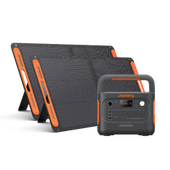



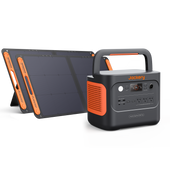

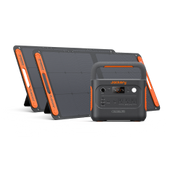
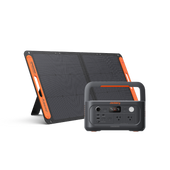
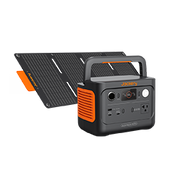
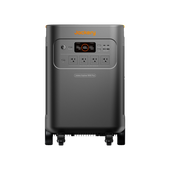

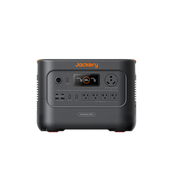
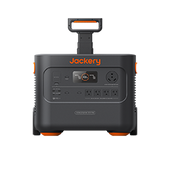
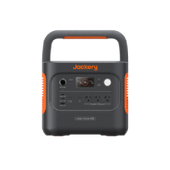
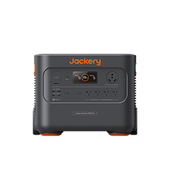

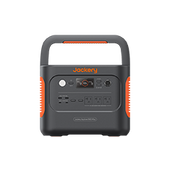
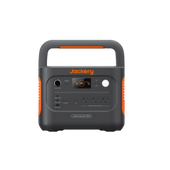
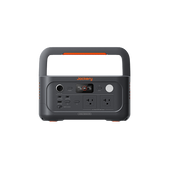

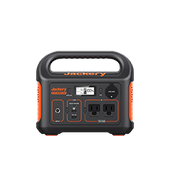
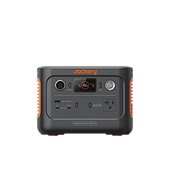
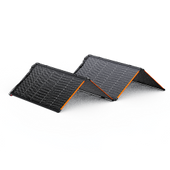
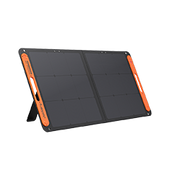


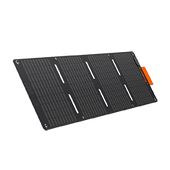
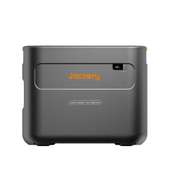
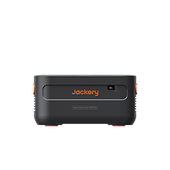
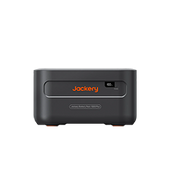
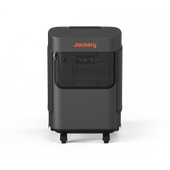
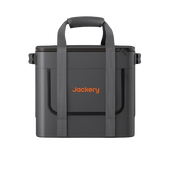
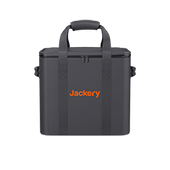
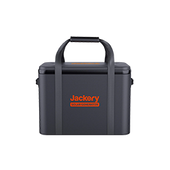
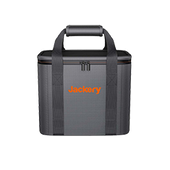
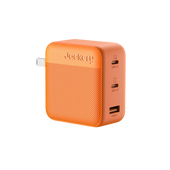

![[Add-on] Jackery Manual Transfer Switch for Explorer 5000 Plus](http://ca.jackery.com/cdn/shop/files/add-on-jackery-manual-transfer-switch-for-5000-plus-240V.webp?v=1757043692&width=170)
